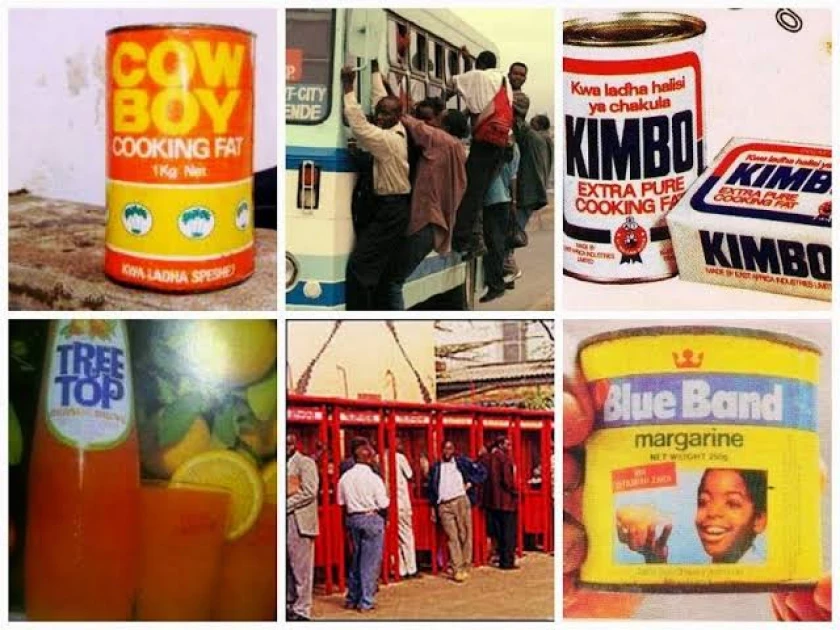Kenyanese: How Kenyans universally use words like 'Thermos' and 'Pampers' to refer to products not even associated with the brand name


Audio By Vocalize
Renowned author and newspaper columnist Sunny Bindra also noted that Kenyans, in their actions and idiosyncracies, were indeed a highly peculiar lot.
He wrote: “If there’s one thing I can confirm after a lifetime of watching my fellow Kenyans and recording their behaviour, it is this: we are indeed peculiar. VERY peculiar. The odd, the strange, the eccentric and the outright bizarre are often very much the norm here."
"Over the years, I have taken great pleasure in placing my tongue firmly in my cheek and writing about peculiar Kenyans. Which means most of us. In fact, our peculiarity may be the one thing that unites us."
Obviously, all societies exist in a pastiche of their own uniqueness and eccentricities; qualities which define a people, their background, their commonness and their outstanding distinctiveness.
The Kenyan people, for instance, have a rather odd inclination to lump a particular name with all the products associated with it, paying little attention to the actual name of various products under which one brand particularly specialises in.
It is widely common for any Kenyan, regardless of tribe or age, to blanketly throw around a popular brand name in reference to any product, without necessarily sounding off or wrong.
For instance, even though 'Omo' is the brand name for a laundry detergent, which specialises in advanced cleaning soaps for garments, Kenyans will unfazedly refer to every other detergent as 'Omo', even when it has not been produced by the company 'Omo'.
Despite the fact that several other detergent brands exist in the Kenyan market, Kenyans will still refer to any detergent as 'Omo', foregoing the product's actual name, and without batting an eyelid.
The same goes for 'Kiwi', a renowned shoe polish brand that Kenyans grew up (or raised their children) on. To the average Kenyan, every other shoe polish they come across is Kiwi. It doesn't matter the name of the company behind it. Kiwi remains the universally-accepted colloquialism for any and every shoe polish tin.
More such oddities exist in several other brand realms including; Colgate, Jik, Cutex, Kasuku Pampers, Nissan, Vaseline and Thermos.
Cutex, for instance, is a brand of nail care products, founded in 1911, which initially specialized in cuticle remover and later expanded into nail polish.
Kenyans, however, will unbotheredly call any nail polish 'Cutex', with very little concern for the actual brand name behind the particular type of nail polish they're addressing.
Kenyans will also call every vaccum flask 'thermos', despite the fact that 'Thermos' is itself a distinctive brand name and does not apply to every vaccum flask in the market.
Same goes for the word 'Kasuku' which is universally used to refer to any plastic container - but whose name dates back to the cooking fat brand 'Kasuku', produced by Kapa Oil Refineries.
Pampers, which is an American brand for babies' and toddlers' products, has also been widely misused in everyday Kenyan conversations with Kenyans simply using the brand name 'Pampers' to refer to every other diaper brand existing in the Kenyan market.
"Don't forget to buy some pampers on your way home," a Kenyan woman will tell her husband, despite the fact that they don't even use the brand Pampers in her home.
It's just the accepted name for diapers. And we are not willing to change the status quo.
It is consuetudinal for Kenyans to unburden a conversation by lumping renowned phrases and brand names into one, in reference to whatever item they're talking about - and to immediately be understood by the other party, with no need for further explanation.
Kenyans are also expertly adept at code-switching, which is the practice of shifting between two or more languages, dialects, or communication styles within a single conversation or social situation to fit the context or audience.
A Kenyan will be seated at their corner office in Westlands and pick up a call from their homeboy - from there, he will pepper the conversation with all manner of slangs and languages, switching from English to Sheng, to mother tongue while at the same time using street slang intertwined with Cambridge English and a liberal amount of vernacular dialects.
Popular Genge rapper Mejja also dabbled into the topic, releasing the smash hit "Tabia za Wakenya", where he pointed out several peculiarities found in the average Kenyan subgroup.
In the song, Mejja mentions that Kenyans have a tendency to equate harsh sun to an incoming rainy weather, while at the same time pointed out several other things which included clients' interactions with sellers, cheap, predictable lies, love for partying and the three types of people every Kenyan deeply respects - a thief, the police and a matatu driver.
In the ultimate study of the Kenyan ethnography, many things define the true spirit of Kenyanness - and this is not limited to the nation's sociolinguistics but also the culture, social patterns and worldview.
To again quote Sunny Bindra: "At a time when our nationhood is in peril, let us come out and celebrate the fact that whether we emerge from lakes, mountains or oceans, we are uniformly peculiar! Anyone looking for a means of uniting Kenyans need look no further than our national eccentricities."


Leave a Comment